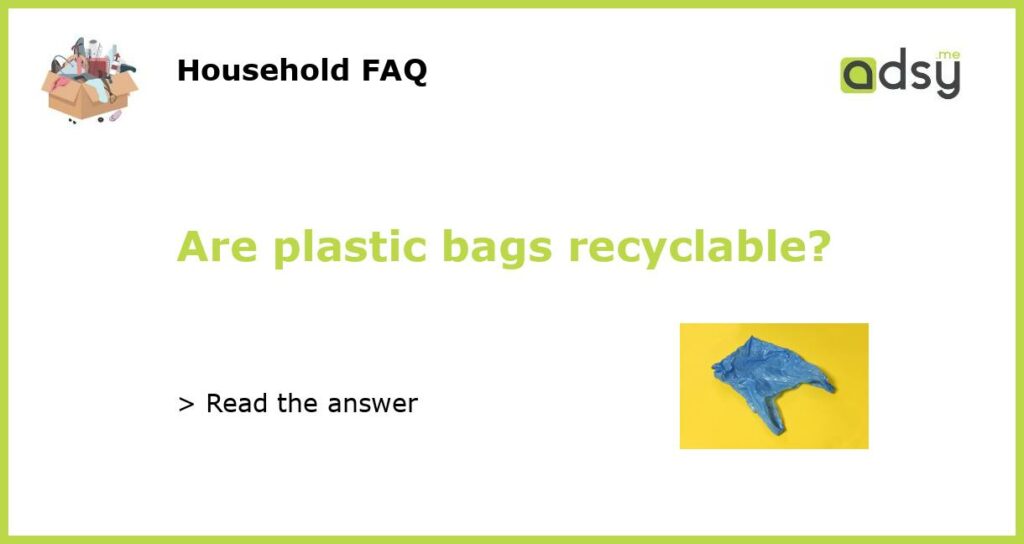Plastic Bags Recycling: The Essentials
Plastic bags have become a common item in our everyday lives. We use them for grocery shopping, packing lunches, and various other purposes. But have you ever wondered what happens to these bags after they have fulfilled their purpose? Are plastic bags recyclable?
The Recyclability of Plastic Bags
Plastic bags are indeed recyclable, but they require special handling and are not accepted in most curbside recycling programs. The main reason behind this is that plastic bags can clog recycling equipment and slow down operations at recycling facilities. Therefore, it is crucial to follow specific guidelines to properly recycle plastic bags.
How to Recycle Plastic Bags
If you want to recycle your plastic bags, the best option is to take them to a designated drop-off location. Many grocery stores and retailers now have plastic bag recycling containers at their entrances. These containers typically accept not only plastic grocery bags but also other types of plastic film, such as bread bags, dry cleaning bags, and produce bags.
While recycling plastic bags, it is important to ensure that they are clean and free of any food residue or other contaminants. Some recycling facilities have strict guidelines regarding contamination, and improperly prepared bags may end up in landfills instead of being recycled.
What Happens to Recycled Plastic Bags?
Once you drop off your plastic bags at a designated recycling location, they are collected and transported to a recycling facility. At the facility, the bags are sorted and processed into tiny plastic pellets. These pellets can then be used as raw materials to produce new plastic bags, as well as other plastic products, such as composite lumber for decking and park benches.
Recycling plastic bags not only helps conserve resources but also reduces the amount of plastic waste that ends up in landfills or pollutes our environment. It is estimated that recycling just one ton of plastic bags can save 11 barrels of oil, 3.78 cubic yards of landfill space, and enough energy to power a home for 35 days.
Environmental Impact of Plastic Bags
While recycling plastic bags is beneficial, it is important to acknowledge the negative environmental impact of these bags. Plastic bags are made from petroleum, a non-renewable resource, and their production releases greenhouse gases that contribute to climate change. Additionally, plastic bags are not biodegradable, meaning they can persist in the environment for hundreds of years.
The improper disposal of plastic bags also poses a significant threat to wildlife. Animals can mistake them for food or become entangled in them, leading to injury or death. Plastic bags can also contaminate bodies of water, threatening marine life. Therefore, it is essential to reduce our reliance on plastic bags and opt for reusable alternatives whenever possible.






